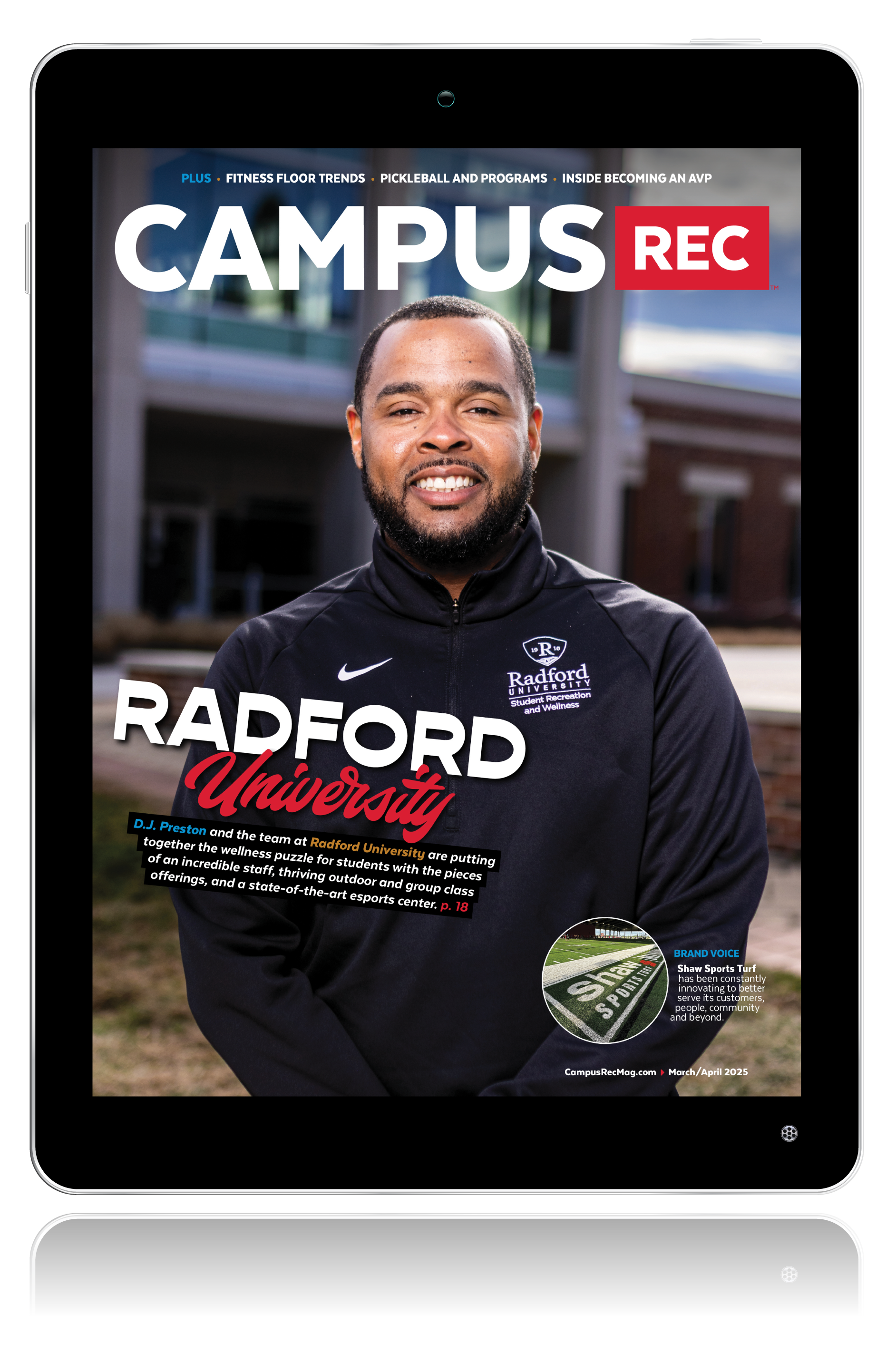The expert advice to answer your most pressing questions. This issue, Brian Mills, assistant director for recreational sports and family programming at the University of Houston, shares advice on intramural programming.
How do you decide what sports to offer?
BM: We are limited by our physical space in the facility. We have to manage to work out space usage from intramural sports, sports clubs, open recreation, and special events and reservations. Our traditional sports are pretty similar from year to year, but we try to add some new aspects to it like stat tracking, players of the game, all-star games or player recognition when possible.
For all of our individual/dual events and minor team sports, we try to add new things every year. We look at which sports have been consistent or successful, we use survey data from our participation, and we look at state, regional and national trends for new ideas. All that being said, it also comes down to budget, what we can afford to do.
What are some ways to increase participation in intramural sports?
BM: I have been at five different schools and at each one it is a mixture of different approaches. What I have seen that is consistent across those five schools is creating a fun and safe environment. By being smart about how you structure sports, creating consistent policies, and having a staff of supervisors, officials and scorekeepers that know what they are doing on a nightly basis, that helps to make the experience better for everyone.
Competition is something that some people like, but is not the foundation I have built any of the programs on. While every school has a handful of teams that are participating to win, the majority are there to have a good time and enjoy time with friends. We make that a key component in our staff trainings, officials’ development, and in our departmental and program values. We recognize that not all teams have competitive natures, so creating that inviting atmosphere helps to bring in more teams.
What are some best practices when it comes to hiring and training intramural officials?
BM: The No. 1 thing is working on retention of officials. It is always a great thing to get new officials from semester to semester and sport to sport, but if those officials don’t stay and work other sports or stay from year to year, your program will also be in a beginner stage of officiating competency. You have to be able to dedicate the time and energy to get new officials to a higher level and then keep them coming back.
Being heavily involved in regional and national events for flag football and basketball, you can see the difference in ability, knowledge and presence from officials that work multiple sports for multiple years.
While there is always an outlier of that rookie official who is amazing and picks up the art of officiating quickly, the bulk of our student officials need time to develop and in a single season for one sport, it isn’t going to happen to the levels we need.










